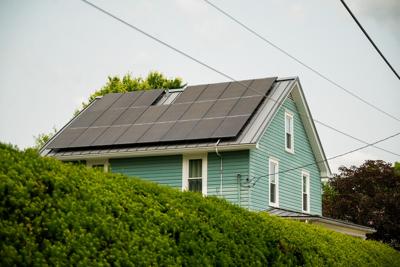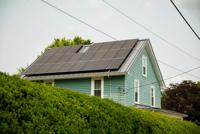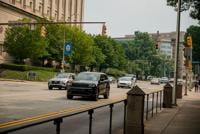(The Center Square) – Bringing solar power to Pennsylvania renters and homeowners unable to place panels on their roofs again came into focus for lawmakers this week.
The House Consumer Protection, Technology and Utilities Committee on Wednesday heard testimony regarding a community solar bill – a topic which has been under consideration for over a decade.
Several witnesses raised concerns and offered changes to clarify the proposal’s language and ensure consumer protections, but the majority of in-person and written testimony voiced overall support for House Bill 1842.
Bill sponsor Rep. Peter Schweyer, D-Allentown, said he hopes to “democratize access to owning generation.” Under current law, renters, or those who lack an appropriate roof or land area for panels, are unable to take advantage of the cost savings derived from solar energy.
While the technology is growing in many communities, he said areas like the one he represents – of which renters make up 65% – have row homes and historic districts where solar panels cannot be installed.
Not taking advantage of available federal grants, Schweyer said, would decrease the likelihood of the bill moving forward. An emphasis was placed on making sure there are zero negative impacts on non-solar ratepayers.
Pennsylvania Building and Construction Trades Council President Robert Bair said the bill needs tweaking, but likes that it's about creating good paying middle class jobs, providing baseload generation and helping the economy and the environment.
“This bill,” he said, “it checks those boxes.”
Alfred "Buddy" Franklin, of the International Brotherhood of Electrical Workers Local #5, said community solar will create jobs for their existing members and allow them to compete for the next generation of workers. They are also pleased the legislation dictates the use of prevailing wage rates.
Coalition for Community Solar Access New Markets Director Elizabeth Van Holt said the 120 businesses they represent deployed over $10 billion in private investment to update the electric grid and build approximately seven gigawatts of community solar nationwide.
She calls community solar “the sweet spot in the middle,” positioned between resident rooftop solar at one end and large-scale utility programs on the other. Projects are capped at five megawatts, and they work with landowners and farmers to develop projects on underutilized land.
Van Holt said the use of private investment dollars avoids using state funds for interconnection costs. According to a Penn State study, those costs are approximately $1 million per project and cover infrastructure benefitting everyone on the grid – not just subscribers to community solar.
Leslie Elder of Summit Ridge Energy said community solar would increase competition, drive innovation and ultimately decrease cost to consumers.
The latter has been a matter of much handwringing in the legislature, as inflationary pressure and decarbonization goals impact energy rates, of which Pennsylvania boasts some of the lowest in the region.
Elder also cited a Penn State study analyzing over 200 community solar facilities. It found the state would generate $1.8 billion in economic impact benefits, with subscribers seeing an annual savings of $31 million.
She said community solar presents an effective means of supplemental income to farmers and provides opportunities for low and moderate-income families to participate and save.
Although generally in favor of the bill, the state’s Consumer Advocate, Patrick Cicero, and Duquesne Light Company’s Vice President of Energy Policy and General Counsel, David Fisfis, recommended modifications addressing their concerns.
One main concern for both is advancing clean energy while not saddling non-participating customers with the cost.
Cicero stated that although the state’s electricity market is competitive, between 70% and 75% of residents receive electricity from their default service provider, rather than shop around for cheaper rates or renewable energy contracts.
Fisfis’ written testimony criticizes Senate Bill 550, a similar proposal considered last year, for implementing an 18 cent per watt grid service payment, which forces all customers “to pay towards the creation, financing, and operation of a community solar facility.”
Unknown community solar availability exacerbates this concern, Cicero said. Electric companies buy energy on the wholesale market through a contract, so not knowing how much solar will be sited in their jurisdiction could result in potential price hikes for default service users.
Proposed solutions include setting an annual cap on community solar facilities and requiring developers to work with the distribution utility and the Public Utility Commission “to braid that in with their default service.”









